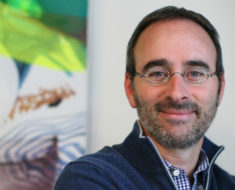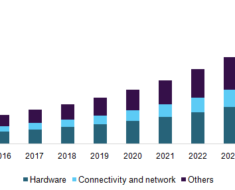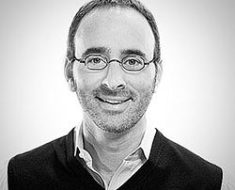Traditional treatments for cancer, Alzheimer’s and diabetes may change under the influence of technology and a shift in social attitudes. The availability of massive amounts of data about the occurrence of the diseases, patient response to them and characteristics of the human body may give scientists the tools to make advances in curtailing the existence of some of the most significant challenges to health.
Putting Big Data to Work
Entrepreneur, scientist, and philanthropist Eric Lefkofsky thinks that harnessing vast amounts of data, machine learning and artificial intelligence can move forward the search for more effective treatments to the diseases that cost lives and limit the enjoyment of life. As a business developer who relies on computer technology for the advantages that it provides, Lefkofsky was surprised to find that the medical field had not accepted its enormous power when he had an opportunity to see the system up close. Recognition and implementation of the potential of data and technology to assist in clinical care were lacking. Consequently, the realization ignited a powerful urge to bring his expertise into the situation that confronts anyone who faces a cancer diagnosis. He was so confident of the importance of technology in the treatment of cancer patients that he compared its absence to driving at night without headlights. It was nearly incomprehensible to him that the treatment of cancer without the benefits of sophisticated software was the current approach. He regarded it as a reckless one, and he decided to use his decades of experience with technology to make a difference.
Harnessing the Power of Information
Lefkofsky’s familiarity with the power that enormous quantities of data, analytics, algorithms and software can deliver in attacking complex problems informs his view of its potential in treating cancer. He contends that the $3.2 trillion that Americans spend on healthcare each year and the National Institutes of Health’s projection for the annual cost to reach $173 billion for cancer treatment by 2020 do not produce enough results. Lefkofsky contends that the public needs to demand more from a system that fails to prevent the death from cancer of approximately 600,000 people each year. Second only to heart disease as a killer, it takes an immeasurable toll on patients and their families.
Encouraging Consumers to Demand More
Practical measures that encourage physicians to base medical decisions on real-time data lie at the heart of Eric Lefkofsky’s approach. By integrating genomic sequencing with the traditional data that physicians collect from cancer patients, they can create more effective treatments. The record of the ways that patients responded to care can inform healthcare providers. A key to opening the storehouse of data that can make a crucial difference in patient care requires a willingness to share it instead of hiding it in silos. Lefkofsky’s view supports the need to collect more molecular information than health care providers currently obtain. The cost of genomic sequencing has already fallen significantly, and patients have much greater access to getting it than traditional practices have allowed. With it, scientists can integrate the valuable data into an electronic medical record that provides a clinical context for each patient. Without it, a patient’s medical history contains only half of the information that may bring personalized medicine within reach of medical professionals.
Understanding the Motivation
Tempus, his tech-based company, is his latest innovation that lets technology help change cancer treatment. He aims to create an infrastructure that includes technology to modernize cancer treatment. A purpose behind Lefkofsky’s motivation to co-found Tempus is to provide the data that helps physicians understand a patient’s genetic code and the role that it has in molecular therapies. The company can amass vast amounts of genomic sequencing data that enables physicians to understand cancer tumors better. The advances bring an aspect to medicine that opens avenues to progress. At Tempus, scientists develop proprietary algorithms and statistical analyses to help doctors prescribe personalized medicine. A goal of creating a breakthrough in cancer treatment continues to motivate the company.
Supporting Philanthropic Causes
Eric and Liz Lefkofsky support a variety of charitable organizations, including one that they founded in 2006 and the Giving Pledge since 2013. Through the work of the Lefkofsky Foundation, educational, charitable and scientific organizations around the world receive vital financial support. As members of the Giving Pledge campaign that the Gates and Buffett families founded, they agree to contribute significantly to charitable causes. Through its education component, the Foundation supports at least 14 organizations, one of which is the Young Women’s Leadership Charter School in Chicago. As the only all-girls public school in the city, it gives local students in the ninth to twelfth grades the skills to achieve academically and to carry its benefits through productive lives.
Research focuses on furthering the development of knowledge about cancer and heart disease. Teams of scientists from various disciplines have a platform that promotes collaboration in pursuit of challenging objectives. The arts and culture division supports the Art Institute of Chicago along with about 15 other organizations. The Institute that continues to serve Chicago as it has since 1879 houses collections that represent 5,000 years of cultural expression along with at least 260,000 works of art.
Follow: https://www.facebook.com/eplefkofsky/
Dil Bole Oberoi



